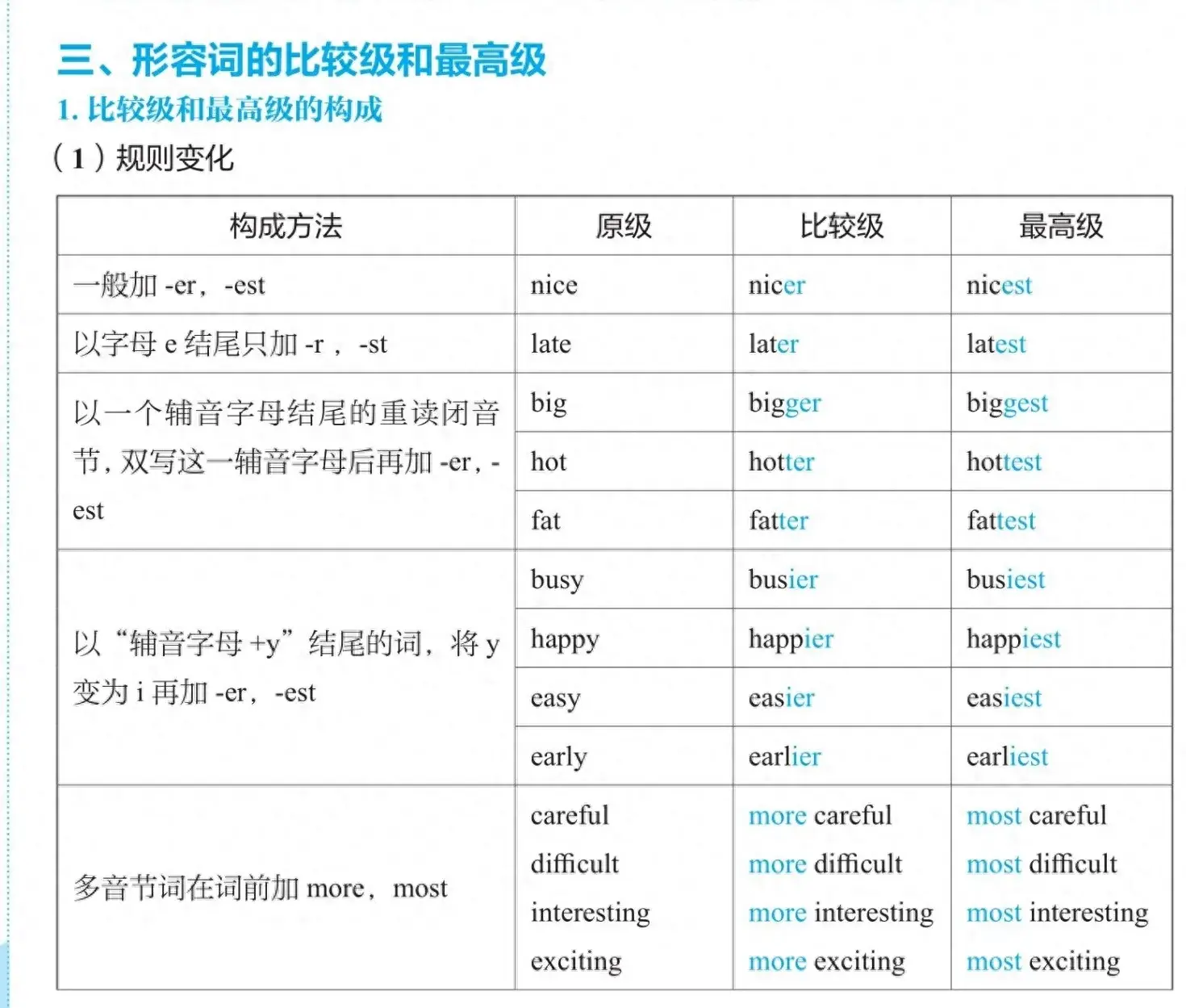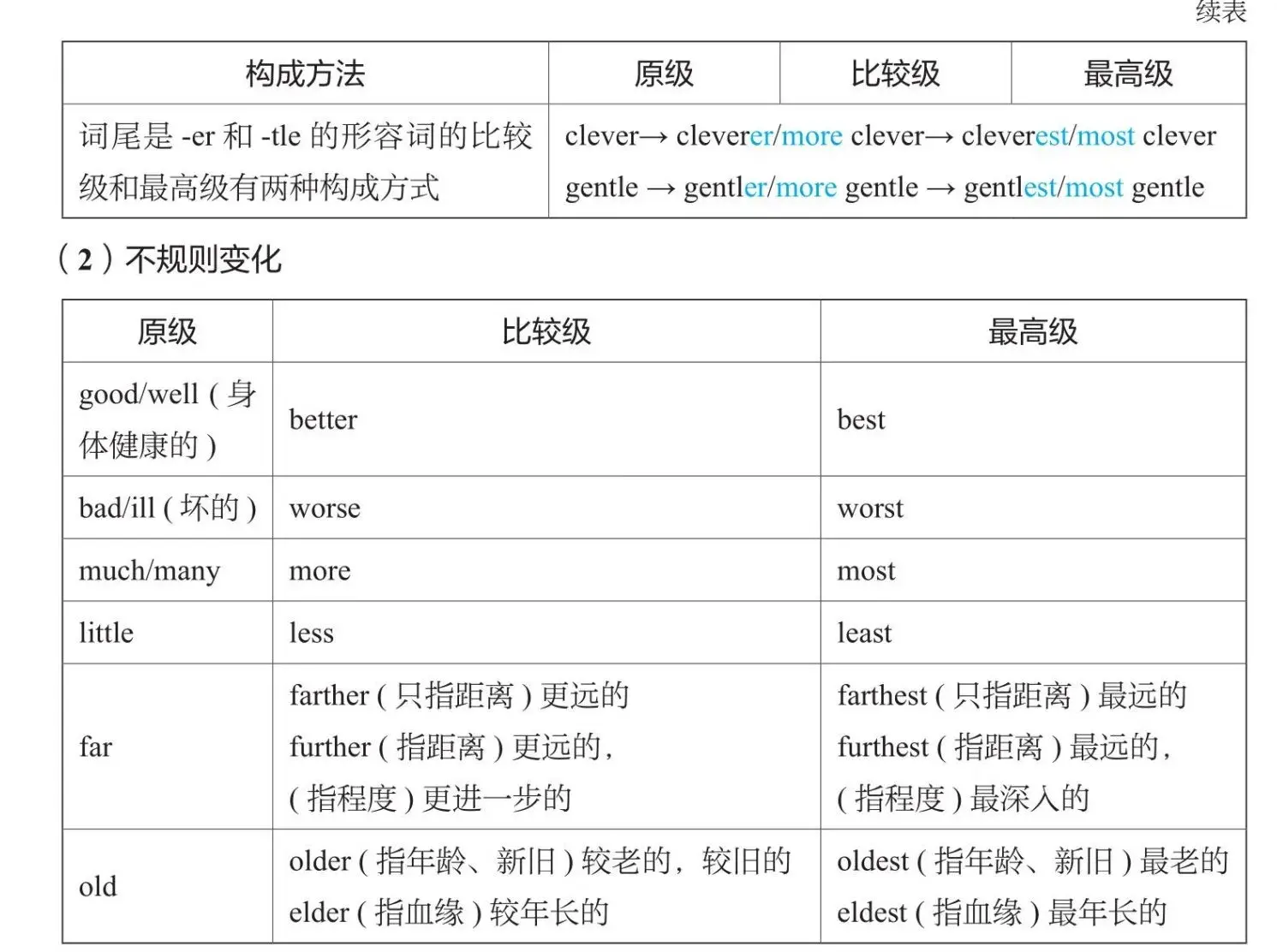形容词/副词比较级规则
- 一般情况下,直接加er或est;
如old—older—oldest;
high—higher—highest
- 以不发音的e结尾的,直接在其后加r或st;
如large—larger—largest;free—freer—freest
- 以一个元音字母和一个辅音字母结尾的,双写最后的一个辅音字母,再加er或est;
如 big—bigger—biggest
thin—thinner—thinnest
hot-hotter-hottest
- 以“辅音字母+y”结尾的,变y为i再加er或est;
如busy—busier—busiest
heavy—heavier—heaviest
early-earlier-earliest
- 有两个或两个以上音节的,比较级前加more,最高级前面加 most。
如important—more important—most important
difficult—more difficult—most difficult
useful—more useful—most useful
常见句型
1)比较级:“A +动词+形容词或副词比较级+than+B”
翻译:A比B更……一些
例如:His brother is younger than I(me). 他弟弟比我年轻。
Beijing is more beautiful than Wuhan. 北京比武汉更漂亮。
【注意】在比较级前可加一些修饰语,如much, a lot, a little, still, even等以示强调或加强语气。
例如:This box is a little heavier than yours. 这个箱子比你的要稍重一些。
This movie is much more interesting than that one. 这部影片比那部有趣得多。
2) 同级比较:
A+动词+as+形容词或副词原级+as+B,“……和……相同”。
例如:My uncle is as tall as your father. 我叔叔和你父亲一样高。
My dog is as old as that one. 我的狗与那个狗一样大。
3) A+动词+not+as/so+形容词或副词原级+as+B 表示“A不如B那么……”。例如:
My uncle is not as tall as your father. 我叔叔不如你父亲高。
Tom is not as honest as John. 汤姆不如约翰诚实。
He can’t run as /so fast as you. 他没你跑得快。
4)“比较级+ and+比较级”或“more and more + 原级(多音节词和部分双音节词)”意为“越来越……”。例如:
Our city is more and more beautiful. 我们的城市越来越美丽了。
5)“the + 比较级,the + 比较级”意为“越……就越……”。例如:
The more you read, the more you know. 你书读得越多,你知道得就越多。
6)…one of the +最高级+名词复数,意为“……之一”。例如:
Lu Xun is one of the greatest writers last century. 鲁迅是上世纪最伟大的作家之一。





